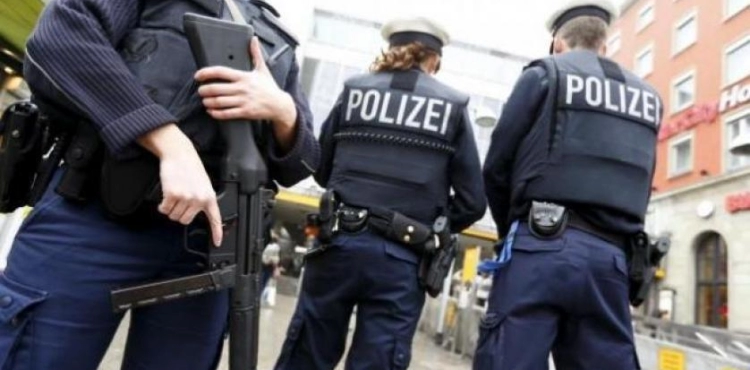The Federal Public Prosecutor´s Office charged with crimes of political and religious motives on Monday confirmed that it was investigating the murder of a German politician supporting the reception of the refugees after being suspected of political motives behind the crime, which has not yet been disclosed.
Police on Saturday arrested a 45-year-old man on suspicion of involvment in the killing of Walter Lobke, head of Kassel district in northeastern Frankfurt, in early June, with media reports of links between the suspect and the far right.
"We have brought the case," said a spokesman for the federal prosecution, which deals with crimes motivated by political and religious hardening.
Walter Lubke, 65, was a member of the Christian Democratic Union party, the party of Chancellor Angela Merkel.
The authorities said on Saturday that "the arrest came on the basis of evidence reached through DNA, and represented the suspect on Sunday afternoon before the examining magistrate in Kassel" in the west of the country where the politician was killed.
The statement did not mention the motive of the crime, stressing that the authorities will issue in the next few days additional information on the findings of the investigation.
The federal newspaper "Sud Deutsche Zeitung" reported that the federal investigators received the investigation after "the suspicion is rooted in the background of right-wing extremist or right-wing terrorist."
The suspect was named "Stefan I." Adding that he had already been sentenced to prison in 1993 for a failed bomb attack on a house for asylum seekers in the town of Hesse.
Three opposition political parties, the Greens, Liberal Democrats and Di Lindy, demanded a special hearing in what could be the first murder of an elected official in Germany in decades.
Walter Lupke was found dead on June 2 on the balcony of his home in Wolfgang, about 160 km northeast of Frankfurt, and was shot dead by a bullet fired by the police.
After Merkel´s decision in October to open the border to hundreds of thousands of Syrians and Iraqis, Lubke defended refugees´ rights, angering the far right.
In October 2015, Lubkie strongly defended the policy of receiving immigrants in the name of Christian values ​​and called on Germans who did not share these "values" to "leave the country".
His assassination sparked a flood of comments on social networking sites, including many pro-killing comments published by far-right people.
Which was condemned by Federal President Frank-Walter Steinmeier and other politicians.
The weekly Der Spiegel, without naming its sources, said that the suspect currently held had clear links in the past to extreme right-wing extremism and links to the new Nazi party.
The magazine said it attracted police attention because of its involvement in violence, possession of weapons and crimes against property.
She said the suspect was sentenced to seven months´ suspended sentence 10 years ago after joining extreme right-wing activists who attacked a march on Labor Day in the western city of Dortmund.
If right-wing motives are proven in the crime, it will be the first political murder of an elected official in Germany in decades, reminiscent of the death of British Labor MP Joe Cox in 2016.
A number of German politicians have been seriously injured in attacks, including parliament speaker Wolfgang Schaeuble, who has been using a wheelchair since surviving a 1990 shooting by a mentally ill gunman and Cologne mayor Henriette Reker, who survived a knife attack in 2015 by an angry man. Its pro-refugee positions.
Between the 1970s and early 1990s Germany was terrified by the actions of the far-left Red Army, which emerged from the anti-Vietnam War protest movement to launch a series of shootings, bombings and kidnappings targeting politicians, police officers, bankers, business leaders and US troops.
"For years, the threats of the extreme right against the politicians have been increasing," said Liberal Democrat MP Benjamin Strasser and a number of deputies on Monday.
"We need to take effective measures against terrorist right-wing entities," he said.












